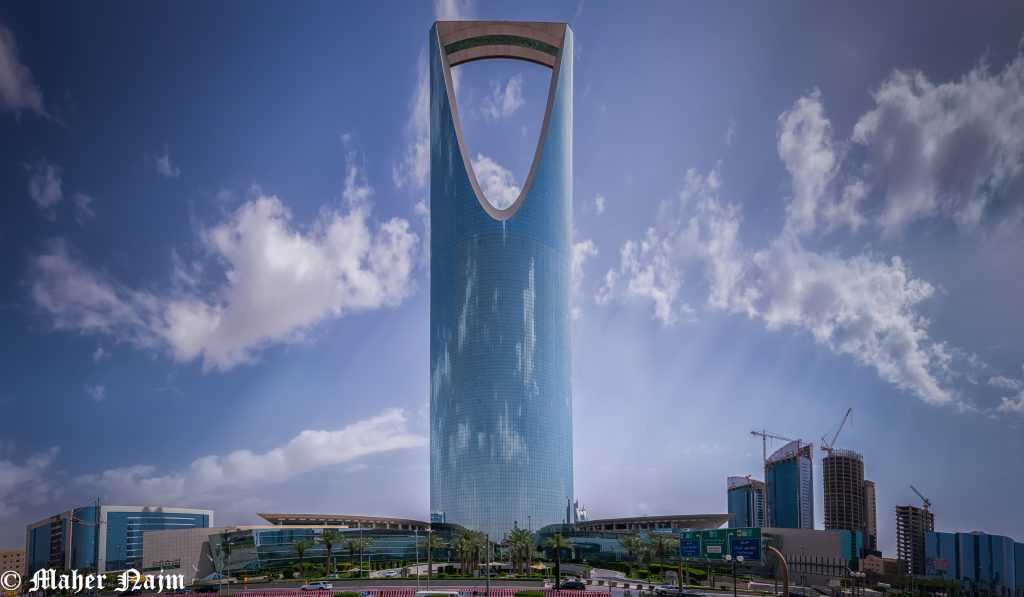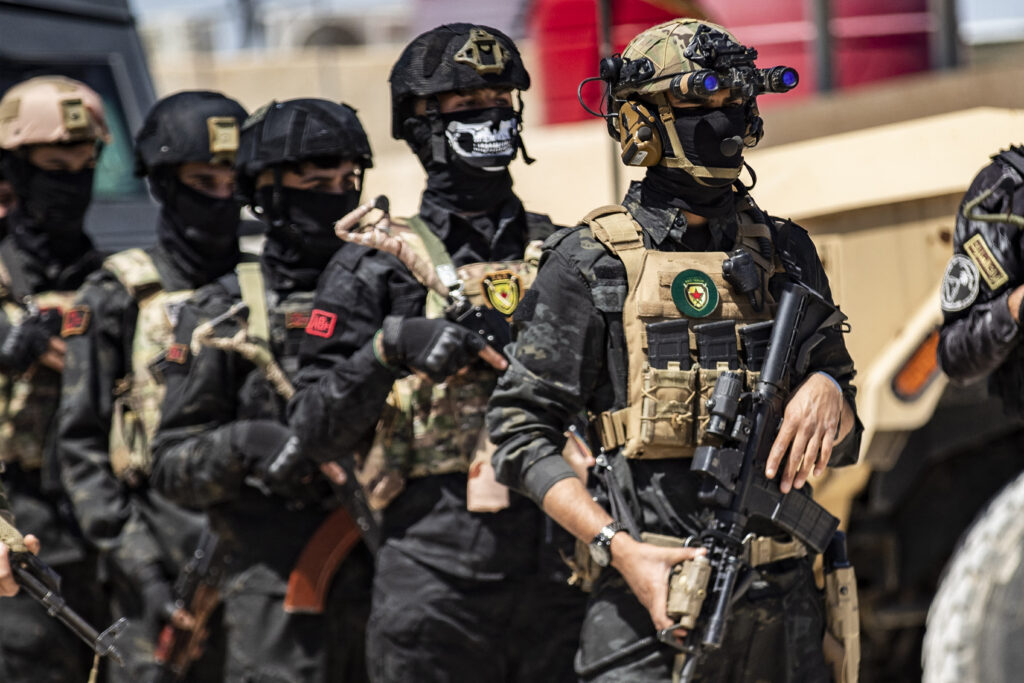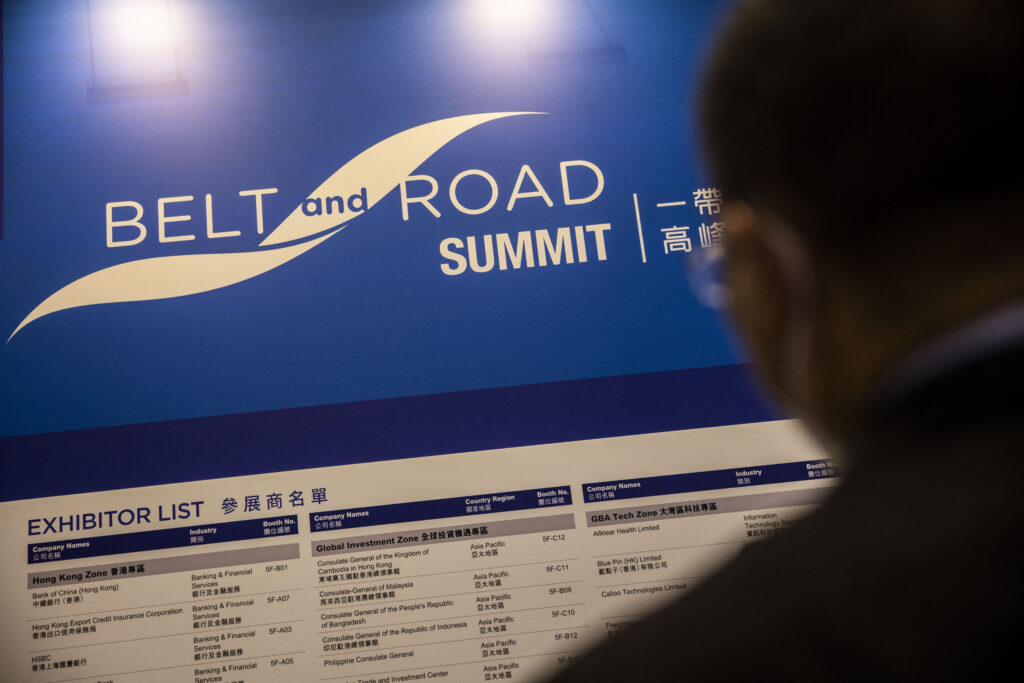In the past few years, many things have changed in the Gulf region. Economic growth has slowed down, new leaders have taken power and security in the region has deteriorated. Against this background, the aim of the Saudi Arabia series of papers is to provide a comprehensive, interdisciplinary understanding of how the kingdom is responding and adapting to the new reality. These papers cover different aspects of Saudi Arabia, such as its economic transformation, the energy market, relations with the United States, Europe and East Asia, external security threats and the role of the youth, women and religion in society.
Saudi Arabia is a major regional power. In the past few decades, the kingdom has been trying to find its feet in the complicated Middle East security architecture. This essay examines the country’s relations with the three non-Arab Middle Eastern powers — Iran, Turkey and Israel. The analysis suggests that geopolitics, more than any other factor, drives the intense rivalry between Riyadh and Tehran. Meanwhile, the Ottoman legacy and President Recep Erdogan’s support for the Muslim Brotherhood are major challenges that affect the close ties between Riyadh and Ankara. Finally, the kingdom’s unconfirmed reconciliation with Israel lacks domestic support.
CLICK HERE FOR THE PDF.
By Gawdat Bahgat
Compared with most of its neighbours, Saudi Arabia enjoys several geopolitical and geo-economic advantages. The two holiest cities in Islam, Mecca and Medina, are a part of the kingdom, it holds the world’s largest proven oil reserves, and production costs are among the lowest in the industry. The country is much larger than its Arab neighbours, with a diverse natural resource potential. Despite these impressive credentials, Riyadh has neither been able to cement its claimed regional leadership status nor advance its perceived national security interests.
In the few decades following the Second World War, Egypt, Syria and Iraq were largely considered the pillars of the Arab world security system. Their leaders promoted their vision of Arab nationalism. However, Cairo has since grown poorer, while Syria has been consumed by a civil war since 2011 and Iraq has experienced regional conflicts and domestic instability since 1980. This emerging leadership vacuum has provided an opportunity for Riyadh to consolidate its status as a regional power. The record of the last several years indicates that the kingdom has not been able to advance its national security interests, despite being one of the world’s largest arms importers. In the Syrian civil war, President Bashar al-Assad has been able to re-take most of the territories previously controlled by the Saudi-supported militia. After more than five years of fighting the Houthi in Yemen, the poorest Arab country, the Saudis cannot claim victory; rather, they are trying to find a face-saving solution. Finally, in September 2019, a coordinated missile and drone attack was targeted at the heart of the Saudi oil industry. Stated differently, despite having access to the most advanced weapon systems in the world and being a close ally of the United States, Riyadh has neither been able to win regional conflicts nor defend the homeland. Against this background, it is important to examine Saudi Arabia’s national security within global and regional contexts.
The Global Context
Global powers have always featured in Saudi national security thinking. Saudi leaders seem to understand the limitations of their national armed forces and have always depended on foreign powers, particularly the United States, to defend them from regional threats. Since the 1945 meeting between King Saud ibn Abd al-Aziz and President Franklin D Roosevelt, the kingdom’s relations with Washington have been characterised as “oil for security”. In 1990, President George Bush Sr did not hesitate to send American troops to protect the kingdom. However, in the past several years, the Saudis have grown suspicious of US intentions. Shortly before leaving office, President Barack Obama argued that Saudi Arabia “should learn how to share the region with Iran”. Despite the close relations established by President Donald Trump with the Saudi royal family, his approach to foreign policy is transactional. In return for defending the kingdom, President Trump demands a heavy price in the form of huge arms deals and significant investments. Saudi strategists also understand that the American Congress, mainstream media and the public in general have very little, if any, admiration for the kingdom’s policies.
Since the early 2000s, Russia, under President Vladimir Putin’s leadership, has taken an assertive approach towards the Middle East. Moscow plays a key role in Iran, Syria, Libya and other regional conflicts.. It has also been active in negotiating civilian nuclear reactor agreements with several Middle Eastern countries, including Iran, Turkey, Egypt and Saudi Arabia. In 2017, King Salman became the first sitting Saudi monarch to have visited Russia. Unlike the United States and other Western powers, Russia does not criticise the kingdom’s human rights record. Despite these positive elements in Russia’s approach, Riyadh does not consider Moscow a strategic ally. The deep disagreement between the two countries over oil production and prices in early April 2020 is a case in point. Furthermore, Putin maintains close ties with Tehran and Ankara — two of Saudi Arabia’s regional rivals — and Russia has never committed itself to defend Saudi Arabia. Consequently, the Saudis have always considered warming relations with Moscow as a tactic to pressure Washington into adopting policies favourable to Riyadh.
Most of Saudi Arabia’s oil exports goes to China, which imports more oil from Saudi Arabia than from any other Middle Eastern supplier. Beijing’s Middle East policy is similar to that of Moscow. One major difference is that China has not shown interest in getting involved in any regional conflict. It takes a business-like approach towards the Middle East and, so far, has refused to play any security role, except selling arms to some countries.
As for the Europeans, their role in the Middle East (and elsewhere) has been significantly marginalised for some years now. The European Union has been weakened by strong disagreements between member states and domestic politics.
Regional Context
Like many other countries, Saudi leaders explore security partnerships with both global and regional powers. In the past decade, Saudi leaders have grown less confident in the global powers’ commitment to their security. For decades, the Saudis have invested heavily in two regional powers — Egypt and Pakistan. These investments, however, have returned very few dividends. The leaders in Cairo and Islamabad have always claimed that “Gulf security is part of their own national security”. Rhetoric aside, the two countries have refused to help the kingdom when it needed them most. They have declined to play any role in the Saudi military campaign in Yemen. Furthermore, President Abdel Fattah el-Sisi of Egypt has maintained a distance from the Saudi-supported opposition in Syria and instead, expressed his support for the Assad regime. Against this background, it is important to take a closer look at Saudi Arabia’s relations with the three non-Arab Middle Eastern powers — Iran, Turkey and Israel.
Iran
The animosity between Saudi Arabia and Iran is deep-rooted and multi-dimensional. It is too simplistic to claim that the hostility between the two nations is driven by ethnic (Arab vs Persian) or sectarian (Sunni vs Shiʿi) rifts. Rather, the essence of the rivalry can be found within its geography and history. The Persian empire is one of the oldest in the world, and Iran is one of the few countries that have more or less maintained its geographical boundaries for millennia. This longevity has helped the nation develop a strong national identity. On the other hand, Saudi Arabia was created as a nation-state only in 1932 and, one can argue, is still in the process of transforming tribal identities into a single national identity. Under both the Pahlavi and Islamic regimes, Tehran has always perceived itself as the dominant power in the Gulf region and called on foreign powers to leave. The kingdom, on the other hand, has always seen its security tied to the presence of American troops.
Given these key differences, relations between the two nations have never been warm. Even in the 1970s, when Tehran and Riyadh were part of the US “twin-pillar strategy”, Saudi leaders rejected the shah’s offer to sign a defence pact. The 1979 revolution added more fuel to the hostility between the two regional powers. Subsequently, Riyadh strongly supported Saddam Hussein in his war against Iran. After the liberation of Kuwait in 1991, Saudi–Iranian relations became less tense. Nevertheless, the leaders on both sides have never trusted each other. This hostility is unlikely to disappear any time soon and reconciliation is not on the horizon. The Saudi Wahhabi religious establishment sees Shiʿism as a deviation from the “right Islamic path” and calls the Shiʿa “rejectionists” — a derogatory term. The political establishment sees Iran’s policy in Iraq, Lebanon, Syria and Yemen as constituting interference in Arab affairs. Riyadh strongly supports President Trump’s “maximum pressure” strategy against Iran.
Turkey
Relations between Ankara and Riyadh are not as tense as those between the latter and Tehran, but they are not warm either. Unlike Iran, Turkey is largely a Sunni-majority country. However the legacy of the Ottoman empire has shaped relations between modern-day Turkey and several Arab countries, including Saudi Arabia. For a long time, Turkish leaders focused their efforts on joining the European Union, but these efforts have not succeeded for various reasons. Some Turks believe Europe has not accepted them because they are Muslims. In response, Turkish leaders have decided to pay more attention to the Middle East. Traditionally, Ankara had sought to avoid political controversies, refraining from taking sides in conflicts in the region. However, since the early 2000s, President Erdogan has adopted an assertive stance on a number of regional conflicts, drawing the accusation that he is trying to establish a “neo-Ottoman” regional order.
Turkey and Saudi Arabia have opposed President Assad in the Syrian civil war, but the two nations have taken opposite sides in most of the other regional conflicts. Seeking to promote himself as the leader of the Islamic world, President Erdogan has taken a hard line against Israel and supported different Palestinian groups, including Hamas. In the aftermath of the so-called Arab Spring, President Erdogan backed the Muslim Brotherhood and other Islamist groups in Egypt, Tunisia and elsewhere. Egypt is a good example of where Turkey and Saudi Arabia pursued diametrically opposing policies. Ankara strongly supported the Muslim Brotherhood-led government of former President Mohamed Morsi. Riyadh, on the other hand, supported President el-Sisi, who ousted Morsi. In the rift between Qatar on one side and Saudi Arabia, the United Arab Emirates, Bahrain and Egypt on the other side, Turkey has taken the Qatari side. Ankara has become a major ally of Doha and has a military base in Qatar. The killing of the Saudi journalist Jamal Khashoggi in the Saudi consulate in Istanbul in 2018 dealt a heavy blow to the already troubled relations between the two countries. A rapprochement or reconciliation between Riyadh and Ankara is not likely to occur any time soon.
Israel
The Jewish state is another regional power that seems to have received increasing attention from Saudi leaders in recent years. Since its creation in 1948, several Arab countries and non-state actors (namely, the Palestine Liberation Organization, Hizballah and Hamas) have engaged in full-scale wars and military skirmishes against Israel. Saudi Arabia has never been directly involved in these military operations. Rather, Riyadh, along with other rich Arab countries, provided massive financial resources to support the military capabilities and economies of Egypt, Jordan, Syria and the Palestinians. The conflict between Saudi Arabia and Israel has always been seen in ideological or religious terms. In other words, the Saudis resent the fact that Israel occupies Arab/Muslim land, including Al Aqsa Mosque — the third holiest place in Islam.
In the past several years, the drivers of Saudi foreign policy, and indeed the foundations of the entire Saudi state, have been gradually shifting away from Wahhabism towards Saudi nationalism. This transition has been accelerated since Mohammad bin Salman rose to power as crown prince. It is important to emphasise that Wahhabism is still an important driver of Saudi internal and foreign policies, particularly among the old generation of Saudi leaders. Public statements made by King Salman and the crown prince suggest that the father is more reluctant than the son to embark on full normalisation with Israel. Officially, Riyadh insists that the only option to end the Arab–Israeli conflict is the 2002 Arab Peace Initiative (API). The API conditions the normalisation of full Israeli withdrawal from the territories it occupied in the 1967 war and the establishment of a Palestinian state with East Jerusalem as its capital. Israel has never accepted the API.
Behind the scenes, however, there are many reports of Saudi–Israeli co-operation and meetings between senior officials from the two countries. These reports have never been confirmed by either side. This unpublicised gradual rapprochement between Riyadh and Jerusalem can be explained by several factors. First, many leaders in the Arab world and elsewhere believe that “the road to Washington goes through Jerusalem”, meaning good relations with Israel would buy them favour with the United States. Second, Israel is a world leader in several military and civilian domains, including cybersecurity, drones, missiles, missile-defence systems and water management. Third, Tehran is perceived by both Riyadh and Jerusalem as a common enemy. Israeli Prime Minister Benjamin Netanyahu has been the world’s most outspoken leader against Iran, and Israel has been attacking Iranian troops and Shiʿa militias in Syria for a number of years.
Despite these favourable trends, the kingdom has been reluctant to openly endorse co-operation with the Jewish state. This reluctance suggests that Saudi leaders are not sure about domestic support. Will the “Saudi street” back the Saudi state in accepting Israel? One can argue that in Saudi Arabia and other Arab countries, the regimes are ahead of their peoples when it comes to advancing co-operation with Israel. Taking steps to revive the Israeli–Palestinian peace process would help to close this gap.
The Way Forward
Saudi Arabia’s efforts to consolidate its status as a major regional power and enhance its national security strategy will be influenced by changes in both global and regional systems, but, most importantly, by political and economic developments within the kingdom itself. The succession issue will play out in the next few years. If Crown Prince Mohammad bin Salman succeeds his father and consolidates power, he might have the opportunity to shape Saudi policy for longer than any of his predecessors. While circumstances could cause him to change his opinions, the policies he has adopted and statements he has made so far indicate a strong opposition to Iran, and, to a lesser degree, Turkey. Meanwhile, the crown prince seems to be more accommodative towards Israel. However, without a strong economy, the prince’s ambitious policies will not bear fruit. For decades, Saudi leaders (and leaders in other oil-exporting countries) have been talking about economic diversification, reducing dependency on oil revenues, “Saudisation” of the labour force and empowering the private sector. Despite some progress, much more is still needed. A modern economy based on heavy investment in human capital is a must if Saudi Arabia intends to emerge with a stronger national security capability that can help to consolidate its status as a major regional power.
About the Author
Dr Gawdat Bahgat is a professor at the Near East South Asia Center for Strategic Studies at the National Defense University in Washington, DC. He is the author of 11 books on the Middle East and more than 200 articles in scholarly journals. His areas of expertise include energy security, proliferation of weapons of mass destruction and American foreign policy.
Image caption: A view of the Kingdom Tower in Riyadh. Photo: Maher Najm / Flickr





